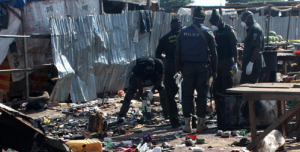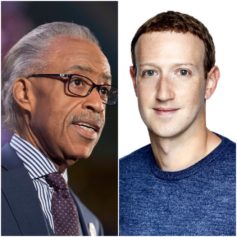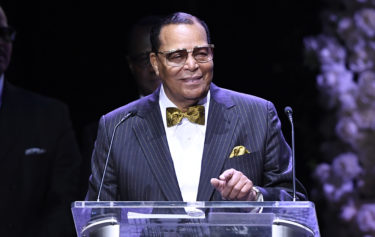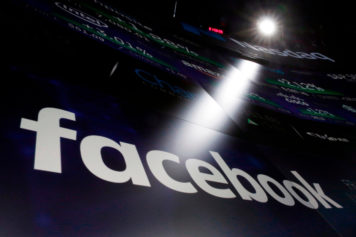Boko Haram, the ISIS affiliate group, has allegedly struck the northeast Nigerian city of Yola, resulting in a 32 casualties. This happened just days after the Nigerian president declared that the terrorist group was close to being defeated. But this begs the question— is this an attack on all humanity?
According to initial reports from Reuters, as least 32 people were killed and 80 were injured and taken to the hospital. The BBC reports that the city of Yola, which is located in the state of Adamawa, has already been hit with deadly bombing attacks twice this year, making it among the hardest hit by Boko Haram insurgents. One of the largest of the 36 states in Nigeria, Adamawa is home to camps housing internally displaced persons (IDPs) fleeing the nation’s terrorist violence. This latest bombing has all the marks of the handiwork of the terrorist group, which has employed improvised explosives and suicide bombings to terrorize citizens over the past six years. Thus far, the violence has claimed at least 17,000 lives. According to the CIA, the violence caused by Boko Haram has created 2,233,506 refugees and IDPs in northern Nigeria.
“The explosion happened in the midst of a large crowd because the area houses a livestock market, an open-air eatery and a mosque,” Red Cross official Aliyu Maikano told the Guardian.
According to one local resident, the explosion erupted in the Jambutu area, just after evening prayers as people left the mosque for dinner.
“The area has been taken over by aid workers and security operatives so that ambulances are going to and fro carrying the victims to hospital. I believe the toll will be high,” he said.
Just last Friday, President Buhari visited Yola to decorate troops in the counter-insurgency and to visit a camp for those displaced by the terrorist bloodshed. He told the soldiers he thought the terrorists “are very close to defeat” and urged soldiers “to remain vigilant, alert and focused to prevent Boko Haram from sneaking into our communities to attack soft targets.”
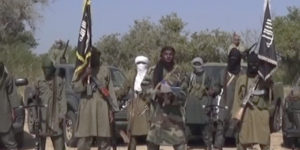
This Friday Oct. 31, 2014 image taken from video by Nigeria’s Boko Haram terrorist network, the leader of Nigeria’s Islamic extremist group Boko Haram, center, has denied agreeing to any cease-fire with the government and said Friday more than 200 kidnapped schoolgirls all have converted to Islam and been married off. (AP Photo)
The latest Global Terrorism Index listed Boko Haram as “the most deadly terrorist group in the world” responsible for killing 6,644 people last year. Meanwhile, the index said ISIS, to whom Boko Haram has pledged allegiance as its West African province, killed 6,073. The index, published by the Institute for Economics and Peace, noted “the major intensification of the terrorist threat in Nigeria” and said the West African nation had “witnessed the largest increase in terrorist deaths ever recorded by any country.”
Although there are signs that Nigeria is making headway in targeting the terrorists’ camps and cutting off their supply lines, fighting Boko Haram has proven a challenge, particularly in heavily populated urban areas. In June, two suicide bombers struck a main market in Yola, killing 31, while in September, a bomb blast claimed seven lives and killed 20 at the same camp Buhari just visited last week. In October, an explosion at a mosque in Jambutu left 27 people dead and 96 injured.
Meanwhile, following the most recent Boko Haram attack, Facebook has activated its “safety check” feature for Nigeria to allow users to let family and friends know they are safe.
“We’ve activated Safety Check again after the bombing in Nigeria this evening,” Facebook founder Mark Zuckerberg said after Tuesday’s attack. “After the Paris attacks last week, we made the decision to use Safety Check for more tragic events like this going forward. We’re now working quickly to develop criteria for the new policy and determine when and how this service can be most useful.”
The social media network faced criticism for implementing the feature following the recent Paris attack, while ignoring the Beirut attack the day before, fueling a well-founded concern the company cared more about white lives and suffering in Western nations. The incident also reflects the lack of diversity and inclusion in Silicon Valley and the U.S. tech sector.
“You are right that there are many other important conflicts in the world,” Zuckerberg wrote in a November 15 post. “We care about all people equally, and we will work hard to help people suffering in as many of these situations as we can.”
